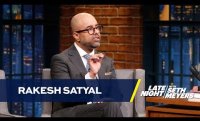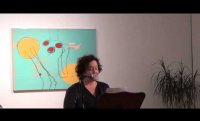Throughout his life, Henry James maintained friendships with and was influenced by painters such as John Singer Sargent and James McNeill Whistler. In his 1884 essay, “The Art of Fiction,” he wrote: “The analogy between the art of the painter and the art of the novelist is, so far as I am able to see, complete. Their inspiration is the same.... They may learn from each other, they may explain and sustain each other. Their cause is the same, and the honour of one is the honour of another.” Write a short story that pays homage to a painting you particularly like. Perhaps there is a scene depicted or a statement made that sparks a narrative. Imagine the inspiration or cause for the painting, and then experiment with mirroring that to drive the writing forward.








